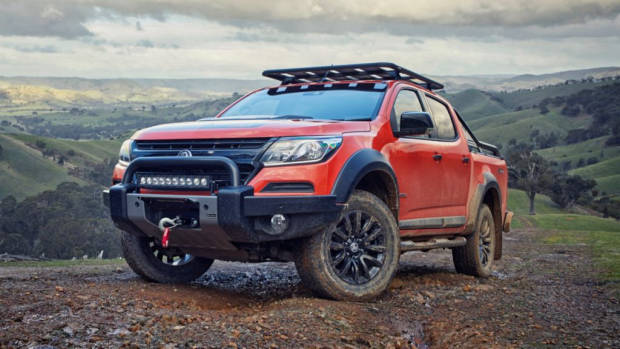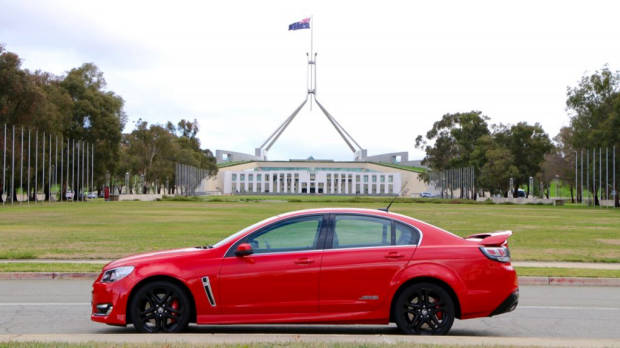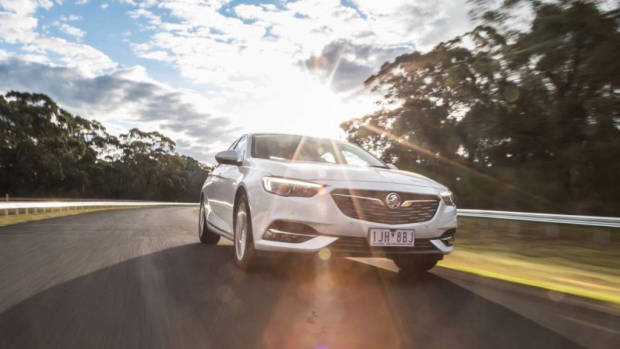-
Car Reviews
- All reviews
- Midsize SUVs
- Small cars
- Utes
- Small SUVs
- Large SUVs
- Large cars
- Sports SUVs
- Sports cars
- Vans
Latest reviews
- Car News
-
Car Comparisons
Latest comparisons
- Chasing Deals
November marked the lowest monthly sales of the iconic Commodore since Holden debuted the nameplate back in 1978 and now the Aussie brand has turned its back on the beloved family saloon. The 2018 update that brought GM’s Opel Insignia into the country resplendent with the iconic nameplate was one of the nails in the coffin, but the Aussie consumer’s demand for SUVs was likely the last.
With the announcement of the death of both Commodore and Astra nameplates comes a push for family safety. Holden claims the decision is down to a “safety first” approach, with customers prioritising occupancy safety with autonomous tech and in-car entertainment, but we know they’re also being lured in by larger and more secure SUVs.
Holden claims that now they have their “best portfolio ever”; it’s made up of ring-ins from GM worldwide like big Acadia SUV, rather disappointing Trax and the Colorado ute, the brand’s current best-seller.
We remember outcries in 2017 when Holden was looking to the European arm of GM to find a replacement for the big sedan, but the truth is the original VB Commodore of 1978 was based on an Opel Rekord, a car that broke in half under Aussie testing.
Thanks to the failures in development, the VB was almost entirely reengineered to the point where it was made from just 35% Opel parts. This was the beginning of the Commodore’s hallmark comfort, space and dependability.
Importantly the Commodore was always a good car to hustle, by the end of Australian manufacturing the VF’s chassis tuning was suitably impressive, the way it ate up sharp back road bumps and could still perform well on tracks (in SS form) was a major pulling card, and we’ll never forget the brutish V8 soundtrack.
Lukewarm critical reception of the ZB Commodore was certainly part of the end, the car was an impressive steer helped no doubt by its Australian specific suspension tune, but it lacked rear wheel-drive hooliganism of the VF and had entered a marketplace falling out of love with the big sedan.
It’s not just Holden seeing this trend, at the recent Honda Accord launch we heard executives saying they were targeting meagre sales numbers, the Japanese giant happy to sell just 150 units of the Accord per year.
Yet the Astra was also a car that did well for many years, with no signs of small-car sales halting like big sedans did, perhaps it’s that Holden has lost consumer confidence.
From a brand with two regular top-ten selling models in 2005 to one that in November of 2019 squeezed just one car in the top-twenty list and failed to feature in the top-ten sales, Holden is a brand in crisis.
So while we’re looking back fondly on the years of V8 super-sedans and happily reminiscing about long summer days in the backseats of Commodore wagons, it seems a shame that the Australian Icon went from strength to struggle in such a short period.
People are working at Holden now who know how to make a car work for Australian conditions, we really hope those skills get put to use in their SUV line-up for 2020.
Latest news
About Chasing cars
Chasing Cars reviews are 100% independent.
Because we are powered by Budget Direct Insurance, we don’t receive advertising or sales revenue from car manufacturers.
We’re truly independent – giving you Australia’s best car reviews.


